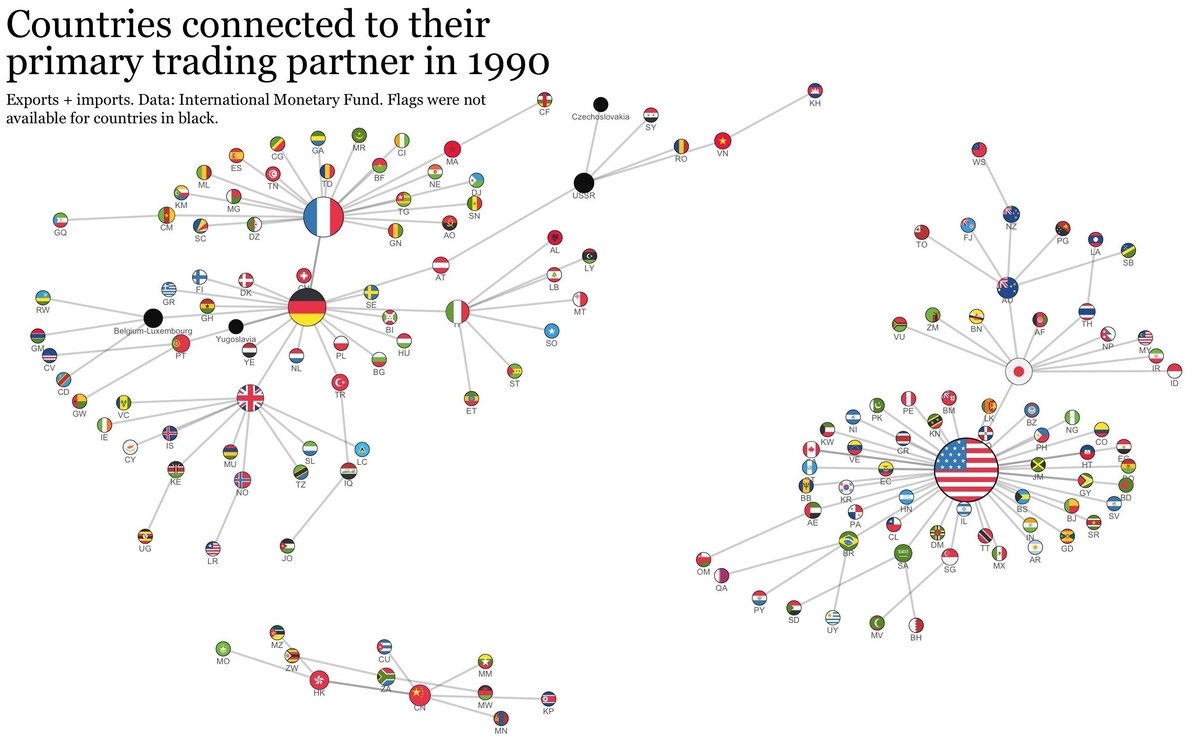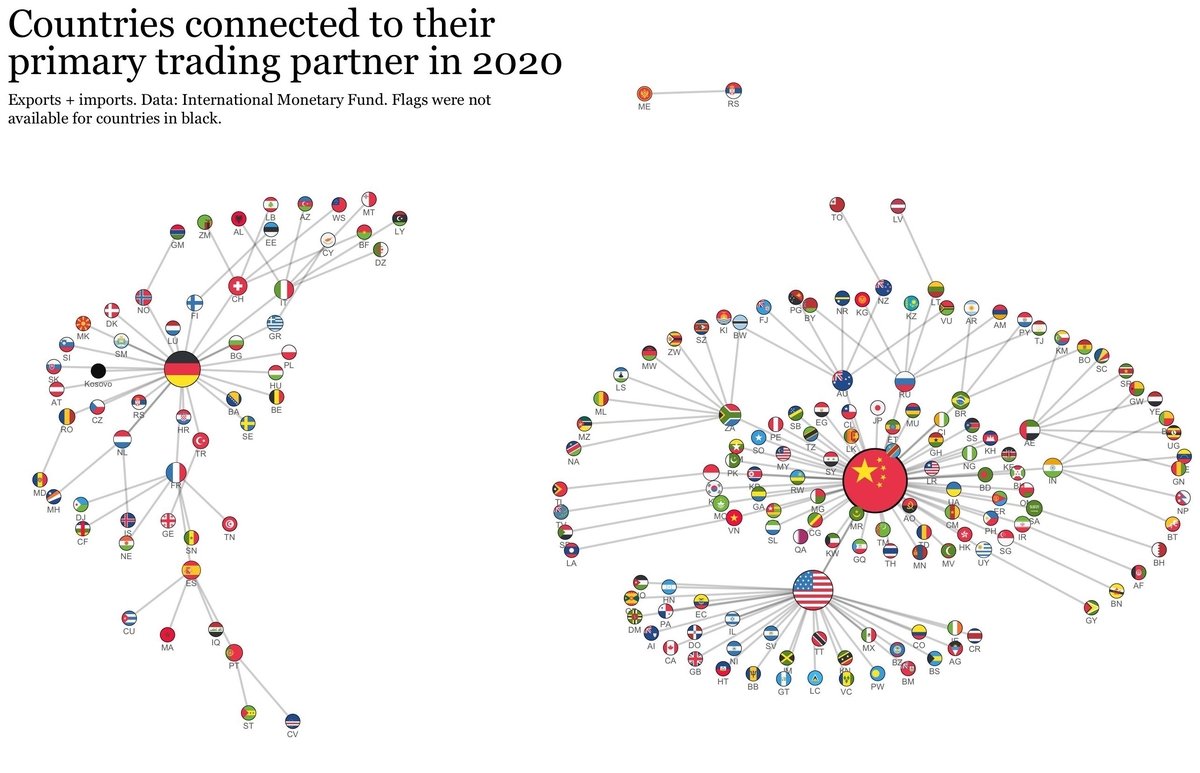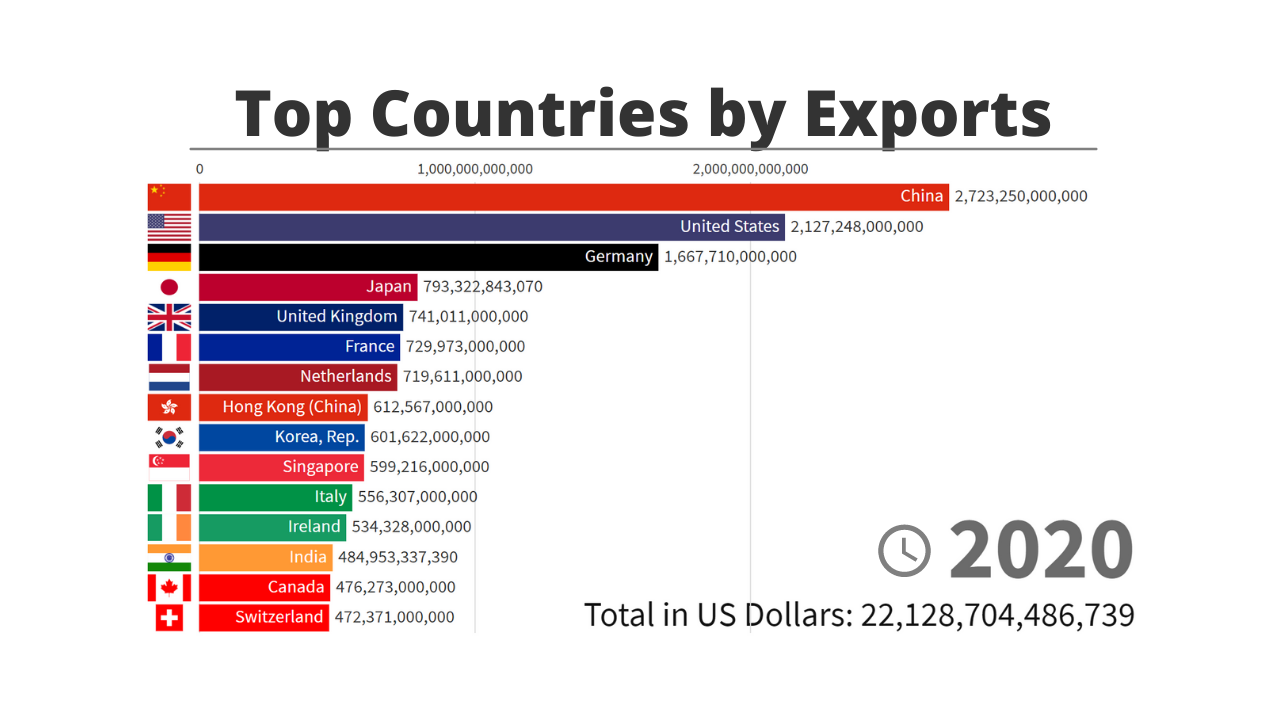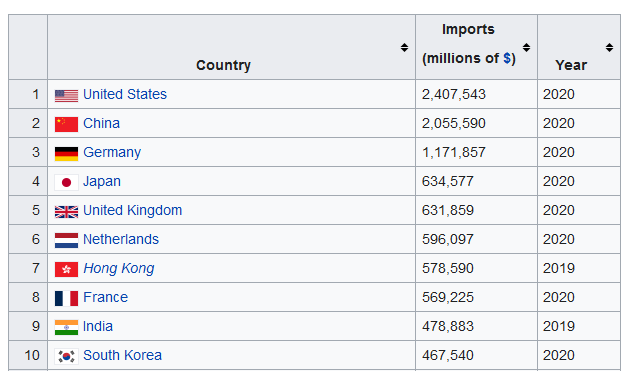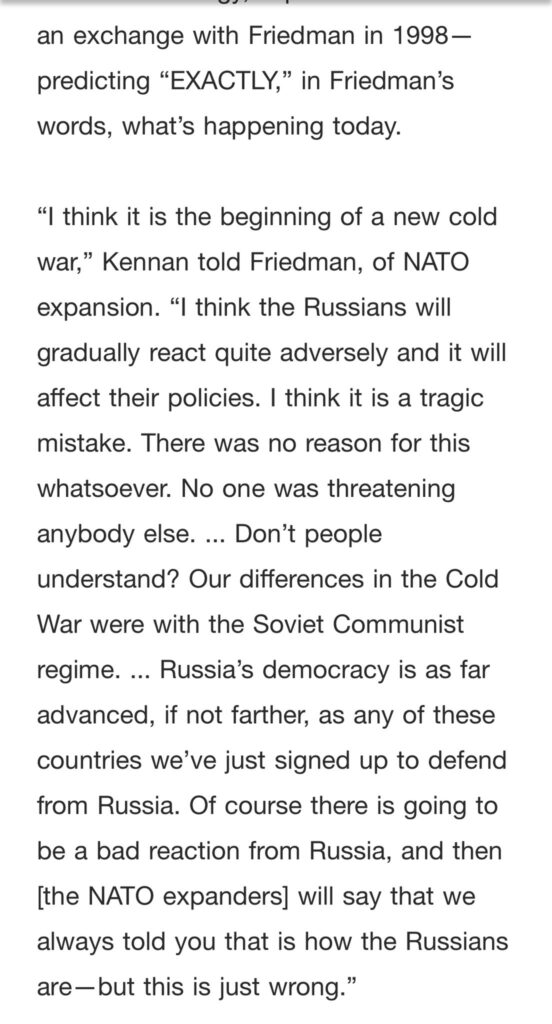Meanwhile, the UK is shipping weapons to Ukraine that are capable of striking Russian cities.
As a moral matter, of course, the Ukraine has the right to strike Russia, same as so many countries have the right to assassinate American leaders and bomb American weddings in which “high value targets” might be involved.
But let’s consider the state of the war. Putin calls it a special military operation. Reserves have not been called up, and a great deal of care is being taken in the use of force. Unlike in Iraq, Russia has not taken out power, sewage, water systems, most roads, or rail. It has not unleashed level bombers for massive bombing of Ukrainian cities.
Russia has also not called up its reserves. Putin appears to think that would be unpopular. Russia has millions of men in its reserves. It could call up two million men and not exhaust them. They’re not the best troops, but they would swamp Ukraine.
Now, if Ukraine hits Russian cities, however fair that is, what will happen to Russian public and elite opinion? Imagine Iraq somehow managed to hit New York and cause real damage in the 2000s (if you want a scenario: perhaps they could have smuggled bombs into the harbor on cargo ships).
How would Americans have reacted?
That’s how Russians will react. Add in some atrocity propaganda (and there are plenty of videos of Ukrainian soldiers doing horrible things, they aren’t saints) and Putin will easily have all the backing he needs to go to total non-nuclear war. In fact, even if he doesn’t want to escalate, it would be difficult to avoid.
This would mean, as a start, bombing every road and rail crossing leaving the Ukraine that Russia or Belarus doesn’t control, so more weapons can’t get into Ukraine. It would likely mean removing all power and water from western Ukrainian cities and forcing most of the remaining population in those areas to flee: 20+ million people. And it would mean taking major cities, which Russia will have the manpower to do.
Further, the idea that any Russian government would ever give up Crimea is insanity (that Russia would fight a war to keep Sevastopol is why I was able, in 2008, to predict the next war would be over Crimea).
https://twitter.com/simulacrax/status/1519361548313055235
This idea that NATO has that it can safely fight Russia to the last Ukrainian, without any chance of war-spillover is insane. Likewise, China CANNOT afford to let Russia be broken up. If it is, then China can almost trivially be blockaded and forced into subjugation. They need Russian oil, gas, coal, minerals, and food and without them they cannot survive a confrontation with the West. It is literally impossible.
What China sees is that the US wants to fight wars where they aren’t at risk. If there’s a war in Asia against China, without using nukes, China has little ability to hit the US mainland, while the US can hit China. Yes, Taiwan, South Korea, and Japan (if they’re stupid enough to join in) get devastated, but the US laughs as the damage is done overseas.
https://twitter.com/NiMingda_GG/status/1518654812077932545
I strongly suspect the Chinese now see this as the US plan for them. The US has stated it wants to place hypersonic missiles in the first island chain off China, which includes Taiwan, the same sort of movement of weapons which contributed to Russia’s demands before the Ukraine war (the US is a year or two from hypersonic, but the placement of other missiles and ABM close to Russia has been protested by Russia for years), and recently there has even been talk of putting US troops in Taiwan as a trip wire similar to the one in South Korea.
This means China needs a conventional deterrent; they need missiles that can hit the continental US, and they need to increase their navy to the point where it can fight the US navy in international waters and win. Remember that China’s ship-building capacity is VASTLY larger than that of the US.
The US and UK, both of whom think that Russia and China can’t hurt them, are pushing this war in ways that are very dangerous. This is a bet, in fact, that Russia and Putin are entirely “rational”, despite the rhetoric and won’t risk escalation. But Putin is reputed to have spent hours watching the video of Gaddafi being sodomized by a bayonet before being killed, and the CCP knows that “regime change” is what the US wants for China.
Regime change in China will leave a lot of CCP members, and especially leaders, dead.
This is an existential issue for China and Russia. If they lose to America, their leaders are overthrown. Russia will be dismembered (this is what multiple NATO leaders have said they want), and China will be relegated to permanent 2nd tier status at best. Many of the leaders will die, and many of those will die ugly.
This is understandable for the US. They have a wasting asset: China, given enough time, will inevitably have a larger military, since it has the larger economy, and they are catching up in technology. The US Navy has been shrinking for decades and the US has lost the ability to build ships: they have had to cancel recent designs because on testing, they suck. The US’s ability to build planes is also in doubt: the F-35 was a massive mess and is far too expensive.
Since the US also judges that any escalation short of nuclear won’t hit them, except economically, and will hurt their enemies and their satrapies worse (making Europe weaker economically and stronger militarily is a win for the US), they have a great deal of incentive to escalate as much as possible, and just make sure it doesn’t go nuclear.
This isn’t in anyone else’s interest, but Europe is consumed with fear of Russia, and Western European leaders have accepted the narrative of Eastern Europe and the USA about Russia as a completely rogue power which must be destroyed, because it can never be trusted.
Meanwhile, the US’s ability to control foreign countries outside of Europe is dropping fast. Three of the four Gulf States (creations of the UK and kept in existence by the US) refused to side with NATO in the UN. Saudi Arabia has basically told the US to fuck itself. The Solomon Islands signed a military pact with China which spawned threats from Australia and the US of military action if a base is built because apparently the right to make military alliances and do what you want in your own territory is available only to would be American allies.
India has not gone along with sanctions and Malaysia is wavering.
US hegemony is breaking. Western hegemony is breaking. As alarmed and scared as Chinese and Russian elites are, American and Western elites are furious: absolutely livid that anyone dare challenge them, or that the days of their hegemony may soon be over. Right now, calculating that the costs of wars to stay in charge will not primarily be born by them, they are willing to escalate recklessly.
Since passions are up, I note that this is not a moral analysis about who is good or bad. There was certainly moral justification for going to war against the USSR at various points, but we didn’t and we avoided escalating beyond certain levels because we knew that war with them was unthinkable.
War with Russia is still unthinkable. War with China is abominable.
Our time is done. We sold our patrimony to the Chinese from the 90s thru the 10s, so that our elites could break our working class and get richer than if they had to pay 1st world wages and costs. That’s the truth. Our elites thought they were international elites, not national elites, and they were wrong. The Chinese knew they were a national elite, and, in effect, bribed our elites to give away the most important sources of their real power: having the largest industry, and having a huge tech lead.
Our elites gave it all away, for a few trillion dollars, and China paid happily. Our elites now see that their only chance to retain power is to use the waning asset of military supremacy. First they need to take out Russia, then they can choke China out.
This is an incredibly dangerous thing to do. Even if it doesn’t blow into nuclear war, it can easily blow into hot war. American allies in Asia, I would suggest, would be well advised to decouple militarily. This especially goes for Japan: build your own nukes and conventional deterrent and sit this one out. China can’t reach the US mainland yet, but it can reach you.
On top of all of this extraordinarily dangerous nonsense is the opportunity cost: we should be spending trillions on preparing for climate change and ecological collapse, not playing war games. NATO and Russia, over the last 10 years should have been disarming near mutual borders, not rushing troops, missiles and planes to the borders.
We are acting insane, chimpanzees trying to maintain dominance, locally or globally. And we are going to pay for it, even if we avoid nuclear war, with hundreds of millions, probably billions, of unnecessary deaths.

